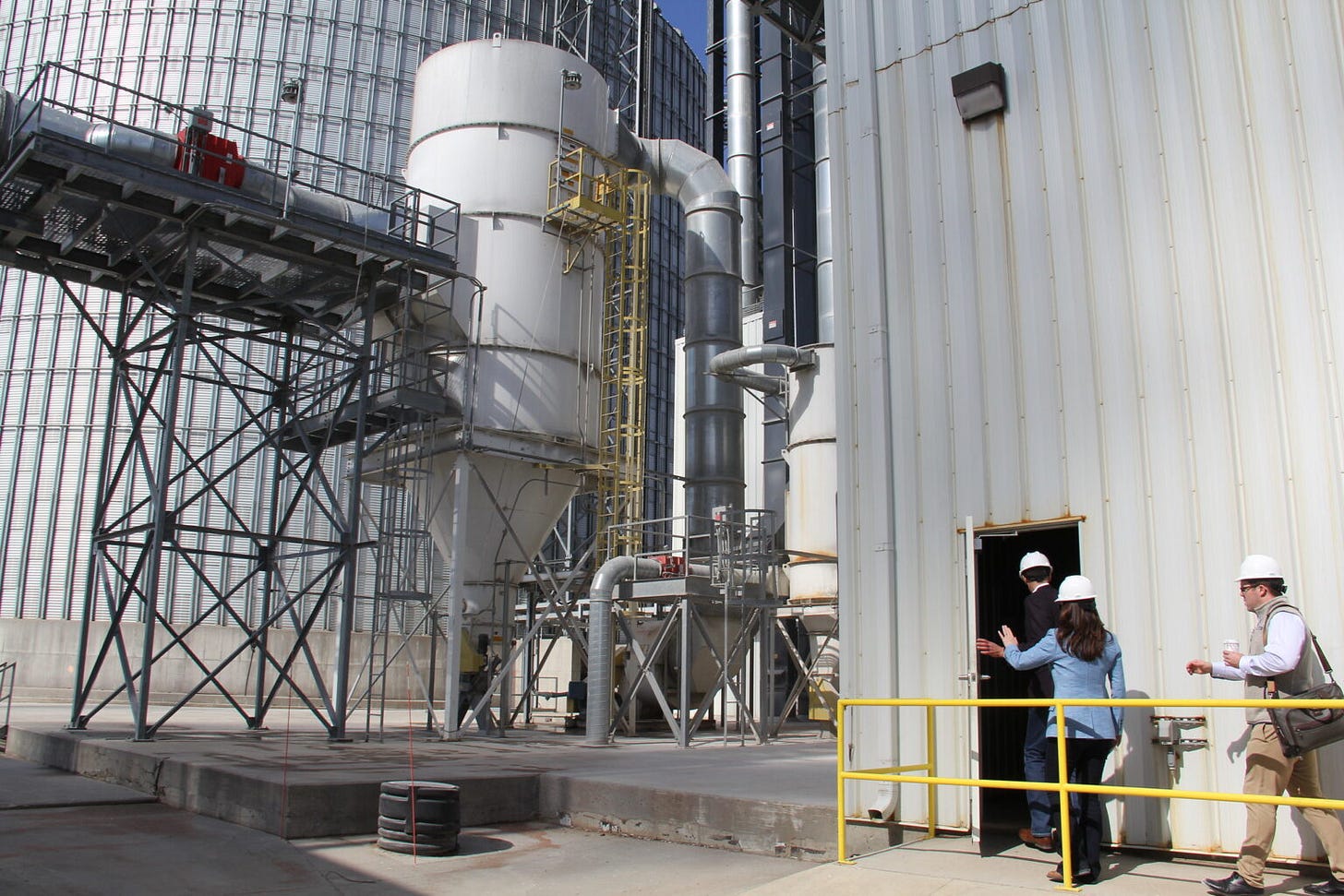EPA Proposes Historic Renewable Fuel Blending Standards
The draft rules propose biomass-based diesel standards equivalent to 5.61 billion gallons in 2026 and 5.86 billion gallons in 2027.

The U.S. Environmental Protection Agency Friday released its renewable fuel standards draft rule which, if finalized, would set record high levels of biofuels to be blended into U.S. transportation fuels.
Iowa Renewable Fuels Association Executive Director Monte Shaw said the draft rule, which proposes a total 24.02 billion gallon blending level in 2026, is a “very strong starting point for further discussions.”
Shaw said the association will need time to evaluate the proposal, specifically as it relates to changes in credits for imported fuels and feedstocks.
According to the proposal, EPA is considering “several regulatory changes” to the RFS program that would reduce the number of Renewable Identification Numbers, or RINs which is the measuring unit for renewable fuel, for imported renewable fuels and renewable fuels produced from imported feedstocks.
The U.S. Department of Agriculture reports imported biodiesel feedstocks, like used cooking oil, tallow and canola oil have all increased over the past several years due to the high cost of domestic feedstocks. According to the same report, in the 2023 and 2024 marketing year, the U.S. consumed nearly 30% of biofuel feedstocks exported globally.
The news to prioritize domestic feedstocks was welcomed by Iowa Soybean Association President Brent Swart, who said biomass-based diesel supports “roughly 10% of the price per bushel of soybeans.”
“Biomass-based diesel has long provided significant value to soybean farmers, helping us weather difficult economic times and supporting our state’s thriving agriculture industry,” Swart said in a statement.
The EPA program sets overall standards and specific standards for different types of biofuels. The draft rules propose biomass-based diesel standards equivalent to 5.61 billion gallons in 2026 and 5.86 billion gallons in 2027.
These figures are a significant jump from 2025 targets from EPA, which set an annual volume requirement of 3.35 billion gallons for biomass-based diesel.
“This is a significant step toward putting the market back on track,” Swart said. “It is also a long overdue recognition that Iowa farmers, soybean processors and the state’s biodiesel producers, can contribute even more (to) America’s energy output.”
Swart said the announcement “provides added certainty” for soybean farmers during the growing season and he thanked the Trump administration for supporting “farmers’ critical role” in U.S. energy policy.
U.S. Secretary of Agriculture Brooke Rollins said USDA and EPA have “never been more aligned” on the demand for domestically grown biofuels.
“This is the highest ever Renewable Volume Obligation and it sends a strong signal to the U.S. biofuels industry that President Trump has their backs and gives them the incentive to invest in American products for American consumers and to export around the world,” Rollins said in a statement.
The EPA proposal additionally waives the 2025 cellulosic biofuel volume requirement and reinstates the values through 2026 and 2027, due to a shortfall in the production of the fuels made from nonfood-based renewable feedstocks, like cellulose or lignin.
The draft rule also removes renewable electricity as a qualifying renewable fuel under the program, which follows a move from the Trump administration to block state-specific mandates on emissions that encouraged the use of electric vehicles.
U.S. Sen. Joni Ernst celebrated the move and the EPA announcement in a statement, saying it brings RFS “back on track.”
“By eliminating the electric vehicle mandate and restoring the RFS’ original focus on liquid transportation fuels, prioritizing domestically grown crops over foreign imports, setting record-high volumes to revitalize the biofuel industry, and adopting safeguards to prevent small refinery waivers from gutting the program—it is clear the Trump administration is committed to championing rural America,” Ernst said.
Iowa Secretary of Agriculture Mike Naig similarly applauded the move, including the proposed regulation changes to steer producers away from foreign-made feedstocks.
“President Trump is once again demonstrating his commitment to showcasing how Iowa-made biofuels can be central to his effort to make America energy dominant,” Naig said in a statement. “Biofuels are a win for drivers and American farmers – they save drivers money at the pump, directly support corn and soybean prices, expand markets for farmers, and support rural jobs and communities.”
EPA will host a public hearing on the rules July 8.
Shaw said IRFA plans to work with EPA through the commenting period and to secure a final rule from the agency.
“Agriculture is hurting, having just endured the largest two-year drop in net farm income in history,” Shaw said. “We need forward leaning RFS blending levels to maximize American energy dominance.”
Cami Koons is an Iowa Capital Dispatch reporter covering agriculture and the environment. She previously worked at publications in Kansas and Missouri, covering rural affairs.
Iowa Capital Dispatch is part of States Newsroom, the nation’s largest state-focused nonprofit news organization.
This Week In Energy republishes their articles, features and stories online and/or in print under Creative Commons license CC BY-NC-ND 4.0.
Everyday your story is being told by someone. Who is telling your story? Who are you telling your story to?
Email your sustainable story ideas, professional press releases or podcast submissions to thecontentcreationstudios(AT)gmail(DOT)com.
CLICK HERE FOR SPECIAL PARAMOUNT + DISCOUNT LINK
Paramount+ offers its subscribers a plethora of quality content.
From instant classic films to banger TV shows like 1883 and Smile 2, there’s no shortage of entertainment to explore.
How about the new series Happy Face? It’s getting fabulous reviews.
Start Streaming Today!





